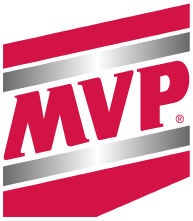Many horse owners are familiar with the importance of protein content in the equine diet, but don’t realize the impact amino acids carry as well. Learn more about amino acids and the role they play in your horse’s overall health and muscle development.
What are Amino Acids?
Amino acids are the building block of protein and play a critical role in nearly all vital processes of the horse. Amino acids are used to build different protein chains for the body, forming enzymes, cell structures, muscle protein, connective tissue, hooves, hair, and more.
Horses require a total of 20 amino acids to build their body’s proteins, 9 of the 20 are considered essential. Essential amino acids must be provided in the diet, as the horse cannot synthesize or create them on its own. Whereas non-essential amino acids can be made on their own by the horse’s body.
A horse receives amino acids via protein consumed in the diet, such as forage and concentrates. The horse’s system breaks down the protein into amino acids and then the body puts these building blocks together into new chain-like protein assortments to make whatever is needed at that moment, such as new muscle tissue. This process is known as protein synthesis.
While the average non-working horse may meet their amino acids requirements with a good-quality forage and concentrate fed at the correct amount per label, that is not always the case; especially for younger, growing horses, broodmares, and horses with a heavy workload.
Limiting Amino Acids
Some of the most common amino acids that fall below the required amount are known as “limiting” amino acids. This means if a horse runs out of this type of amino acid, it cannot utilize any of the remaining amino acids present. The three most limiting amino acids for horses, in order, are Lysine, Methionine, and Threonine.
These three amino acids are an indication of the quality of the protein sources and the balanced nature of a particular feed. It is important to check for these ingredients on the guaranteed analysis of horse feed tags and if not at adequate levels, additional supplementation may be needed.
Muscle Development and Topline
When a horse runs out of a certain limiting amino acid it will inhibit the amount of protein that can be made, in turn limits the horse’s muscle growth and development. Muscle proteins are constantly being broken down and remade, which allows for a horse to adapt to changing conditions. The horse’s topline serves as a good resource for evaluating the horse’s overall muscle condition and development progress.
An ideal topline would have the back, loin and croup full and well rounded, the topline muscles appear well developed and blend smoothly into his ribs. Ensuring your horse has enough amino acids is key in the process of developing muscle tone and overall body composition. Here are some of the essential amino acids needed to help build the strong muscle and improve topline:
Lysine – is the most limiting amino acid in horses. Helps support healthy muscle function/growth and absorption of other minerals (calcium) to support the synthesis of collagen.
Methionine – helps support healthy blood vessels, muscle and tissue health. Important for the formation of Creatine, which helps promote normal energy levels.
Threonine – helps support healthy cartilage, bones, hair, teeth, nails as well as healthy skeletal muscle function (heart, liver etc.)
Branched-Chain Amino Acids (BCAA’s) Leucine, Isoleucine, and Valine - Branched-chain amino acids appear to be the most necessary to help support healthy muscle/function, with Leucine being the most important. BCAA’s should be fed in a ratio of 2:1:1, as listed in above order.
Horses that may benefit from Amino Acid Supplementation
Horses at maintenance or in light work will likely receive all the protein they need from hay and concentrates. However, there are cases where horses may benefit from extra protein/amino acids. If your horse falls into these categories, always begin with high-quality forage and then supplement as needed. When in doubt, an equine nutritionist or your veterinarian can help guide you through your horse’s specific needs.
Signs of Protein/Amino Acid Deficiency:
- Poor body condition/growth
- Lack of Topline
- Brittle hooves
- Poor hair coat
- Illness/slow recovery
- Poor Performance
- Low Energy
The Performance Horse
Much like athletes, muscle breakdown happens at a more rapid rate in performance horses due to the level and frequency of workouts. While exercise will condition muscle, it is important to recognize it does not make muscle. Amino acids must be paired with a proper exercise/training regimen to help support the horse’s body synthesize new protein. And for performance horses, higher levels of amino acids are needed to help support normal muscle recovery and maintain optimal muscle mass. Exercises such as hill work, backing, and exercises that encourage the horse to collect and arc the body help improve the topline condition. Generally speaking, performance horses need adequate levels of essential amino acids to help maximize the effects of training and allow them to look and feel their best.
Young and Growing Horses
The rate of muscle protein synthesis is fastest during growth. Young horses require higher levels of amino acids for proper muscle development because they are growing at a fast rate. Growth can be impaired/stunted if their protein intake is inadequate. This is especially important when a young horse is being introduced to work, as their body is still growing and now being paired with an exercise regimen. Amino acids are an important piece of the puzzle to help set your prospects up for success and overall health for years to come.
Pregnant or Lactating Mares
Broodmares are another case that require higher levels of amino acids as it is essential in the fetal development process and the mare’s increased nutritional demands. Late in pregnancy, a broodmare requires higher levels to build placental and fetal tissue. And the first few months of lactation is also critical timeframe as the mare’s milk is a rich source of lysine to foals.
Horses with Special Dietary Needs
Adding protein to the diet can also add calories and certain sources can be high in sugar. This is particularly tricky for horses for horses with special dietary needs or easy keepers. As always, work with your veterinarian or nutritionist to develop a feed plan to help meet your horse’s dietary needs, as an amino acid supplement may be beneficial.
Amino acids are a key component to supporting a horse’s overall health and wellness. They benefit all of a horse’s vital processes, as they are used to build all the protein in the body. Make sure your horse is consuming enough essential amino acids so that he has the proper building blocks needed to help support normal muscle/topline development and perform to their potential.

